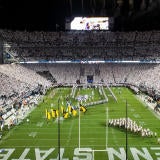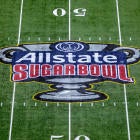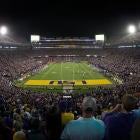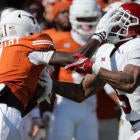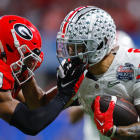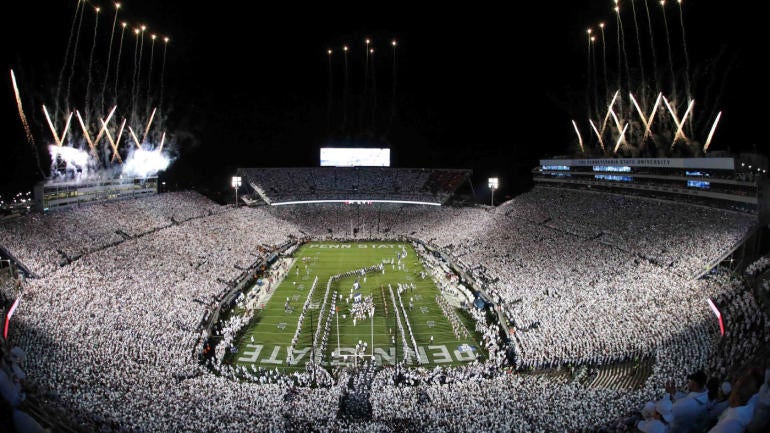
The NCAA Playing Rules Oversight Panel has passed a guideline allowing college football programs at every level of the sport to sell sponsor advertisements on football fields for regular season games. The new guideline will go into effect in time for the 2024 season.
Corporate advertisements will be limited to three spots on the field: A single advertisement on the 50-yard line, along with two smaller ads elsewhere. On-field sponsor logos were previously only allowed for postseason competitions and neutral site games.
"This change allows schools to generate additional income to support student-athletes," NCAA president Charlie Baker said in a statement. "I'm pleased that we could find flexibility within our rules to make this happen for member schools."
News of the field logos was first leaked by Florida athletic director Scott Stricklin, who referenced the NCAA's consideration of the revenue driver at SEC meetings. A source confirmed that the upcoming field advertisement decision was also discussed at multiple other spring meetings.
"That's an obvious revenue stream we have not had in the past," Stricklin said.
Athletic departments are grappling with an expected $22 million annual revenue share cost -- likely to go into effect in August 2025 -- as part of the House settlement terms. In particular, schools outside of the Big Ten and SEC are struggling to close the gap as the two leagues face a potential $30 million shortfall in television revenue compared to the "big two".
"I think it's incumbent upon the conference to do more and provide more resources, and I'm focused on it," Big 12 commissioner Brett Yormark said. "We've spent a lot of time with the ADs, talking about how they can grow their own resources on campus."
Teams have gotten around field sponsorship rules by selling naming rights in the past, but fewer than a dozen schools have taken advantage at the power conference level. No program that has ever made the College Football Playoff has sold full stadium naming rights. The new legislation could allow teams to maintain their historic names and branding while still taking advantage of new sponsorship opportunities.

